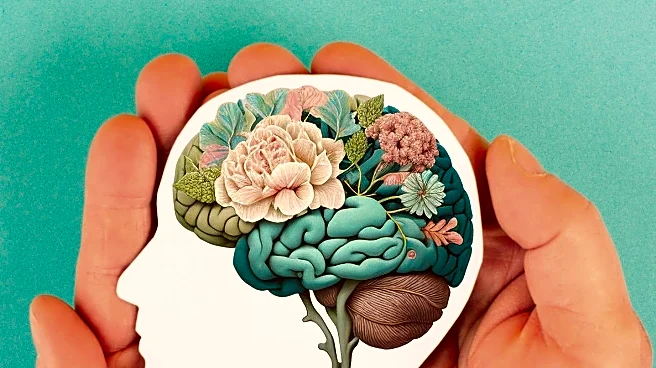What's Happening?
A study conducted by researchers at the University of California, Irvine and the University of La Laguna in Spain has identified a link between changes in brain shape and cognitive decline, potentially serving as an early indicator of dementia. The research analyzed 2,603 MRI brain scans from individuals aged 30 to 97, tracking structural and shape changes over time and correlating them with cognitive test scores. Findings suggest that age-related expansions and contractions in brain shape are uneven across different regions, with more noticeable changes in individuals experiencing cognitive decline. The study highlights the entorhinal cortex, a crucial memory hub, as a region potentially affected by these shape shifts, which may contribute to the onset of Alzheimer's disease.
Why It's Important?
This research is significant as it offers a new perspective on early detection of dementia, which could lead to improved care and treatment options. By understanding how brain geometry affects cognitive functions, scientists can develop more targeted interventions for neurodegenerative diseases like Alzheimer's. The study suggests that monitoring brain shape changes could be a relatively simple method for identifying dementia risk, potentially allowing for earlier intervention and management of the disease. This could benefit healthcare providers, patients, and families by providing a proactive approach to managing cognitive decline.
What's Next?
Further research is needed to establish precise relationships between brain shape changes and cognitive decline. The researchers plan to conduct more brain scans and measurements to explore why certain brain areas expand with age and how this affects cognition. Understanding these mechanisms could lead to new strategies for early detection and prevention of Alzheimer's disease. The study opens avenues for exploring the role of brain geometry in other neurodegenerative conditions, potentially leading to broader applications in neuroscience and healthcare.
Beyond the Headlines
The study raises ethical considerations regarding early detection of dementia and the implications for individuals diagnosed with cognitive decline. It also highlights the need for advancements in imaging technology to accurately track brain shape changes. Long-term, this research could shift the focus from brain volume to geometry in understanding brain health, influencing future studies and treatment approaches.









